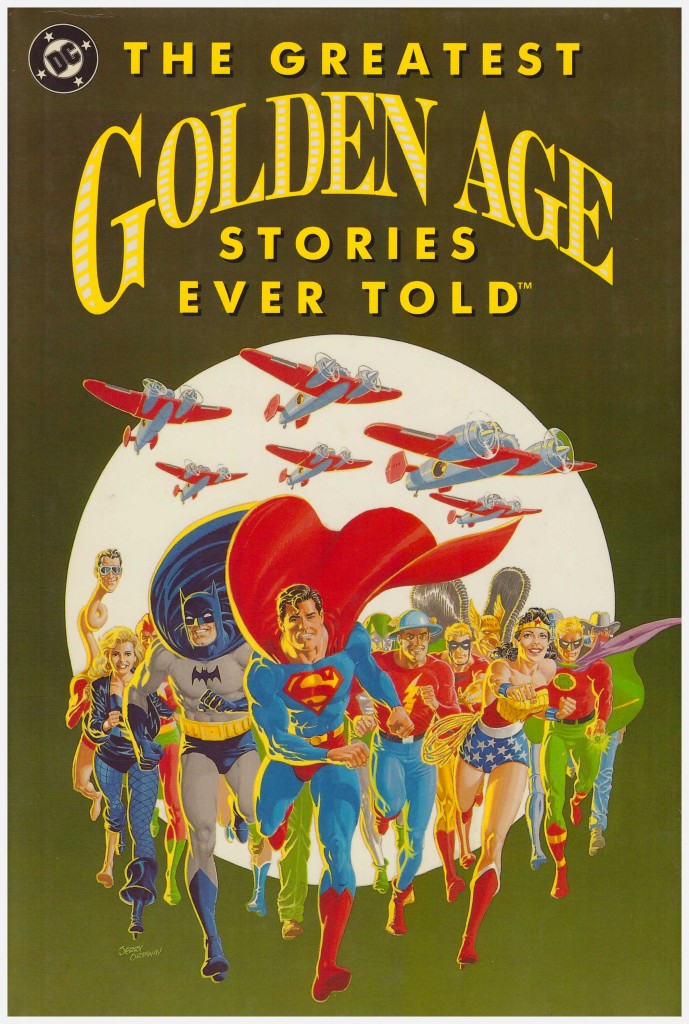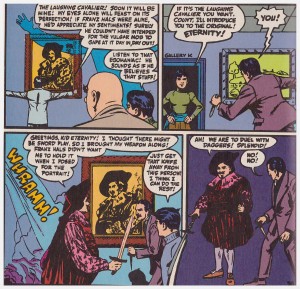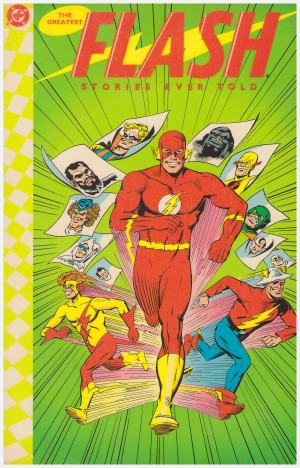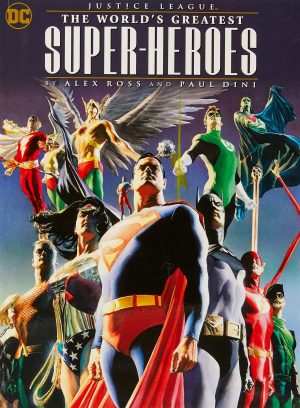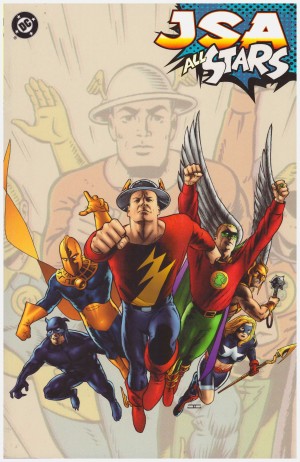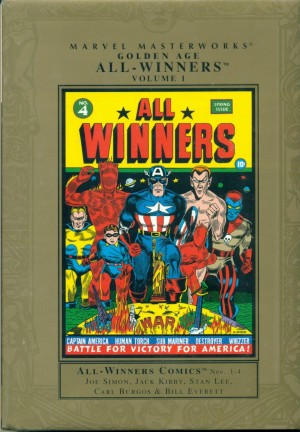Review by Frank Plowright
In an era when graphic novels and collections were few and even a primitive form of downloading was a decade away, DC’s Greatest Ever compilations were viewed as a possibly once in a lifetime opportunity to access otherwise unattainable material. Batman, Flash, Green Lantern, Joker, Superman and Wonder Woman all received the treatment, and DC then instituted collections focusing on criteria other than single characters.
“The Golden Age” was the nostalgic term applied to the comics of the 1940s by 1960s fans. While wildly inaccurate, the phrase has become ingrained. As with all the collections to that point, The Greatest Golden Age Stories Ever Told is expertly curated, and editor Mike Gold provides a lengthy introductory essay explaining exactly how, reinforced by associate editor Robert Greenberger’s end notes. The selection procedure prioritised highly regarded creators, important characters (both from DC’s history and from other companies whose material they’d acquired), origin tales, and material that hadn’t previously seen print since the 1940s. An exception is the longest tale, the Justice Society of America engaging their evil counterparts the Injustice Society, once reprinted in the 1970s. The inclusion was justified on the basis of it being among the best of their stories.
As a rule, comics from the 1940s haven’t held up very well. Readers used to the character-led narratives prevalent since the 1970s may find the plot-driven material primitive, particularly comparing Batman of today with his 1940s counterpart. There’s no question that much of the art is primitive, yet the flowing illustrative style of Lou Fine, or Sheldon Moldoff’s newspaper strip influenced delicacy or the pure kinetic energy Jack Kirby brought to his pages even in the 1940s still impresses. So does the manic inventiveness of Jack Cole on Plastic Man, with a story still not reprinted in the Plastic Man Archives, and Sheldon Mayer’s more restrained Scribbly, from 1939 and one of the few non superhero strips.
The logic of some stories is plain bizarre by 21st century reckoning. Who would send children into a war zone? Yet suspend that disbelief and the Boy Commandos provide a rollocking good adventure strip. What was Jerry Siegel smoking when he visualised the Spectre and his enemy growing so large they balanced on planets to throw comets at each other? And Wonder Woman discovering the Garden of Eden is William Moulton Marsden and Harry Peter’s usual dose of perversity as Wonder Woman is tied up not once, but twice in eleven pages, and never mind the freeze-dried women. And then there’s Slam Bradley, a man so hard he rips his shirt as he fastens the top button.
Yet picking holes in material so distant is shooting fish in a barrel, and there are plenty of pleasant surprises. Wildcat’s origin story for one. Irwin Hasen had an elegant style, and Wildcat’s progression through paternal ambition, to boxing champion, accused murderer and costumed crime-fighter is tightly-plotted melodrama from Bill Finger. The Mac Raboy drawn Kid Eternity calling on prominent figures from history to fight the crime of the 1940s remains an interesting idea, and Gardner Fox applies a decent Damon Runyon pastiche to a Flash story.
Possibly not entirely for the same reasons as in the 1940s, or indeed at its 1990 publication, The Greatest Golden Age Stories ever Told remains a diverting way of passing a couple of hours.
